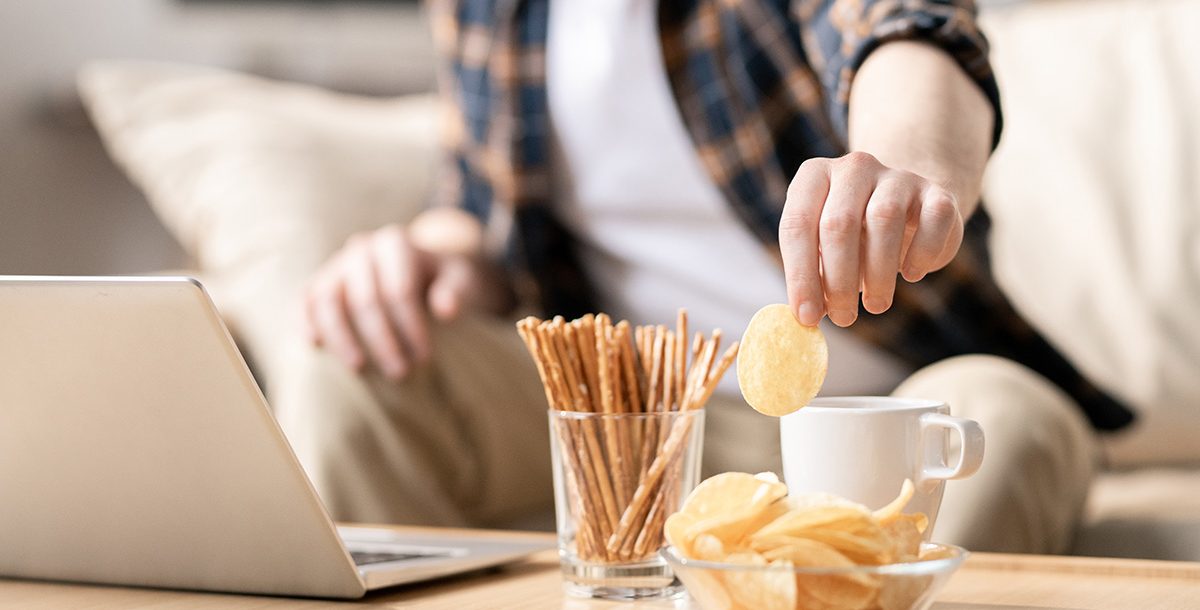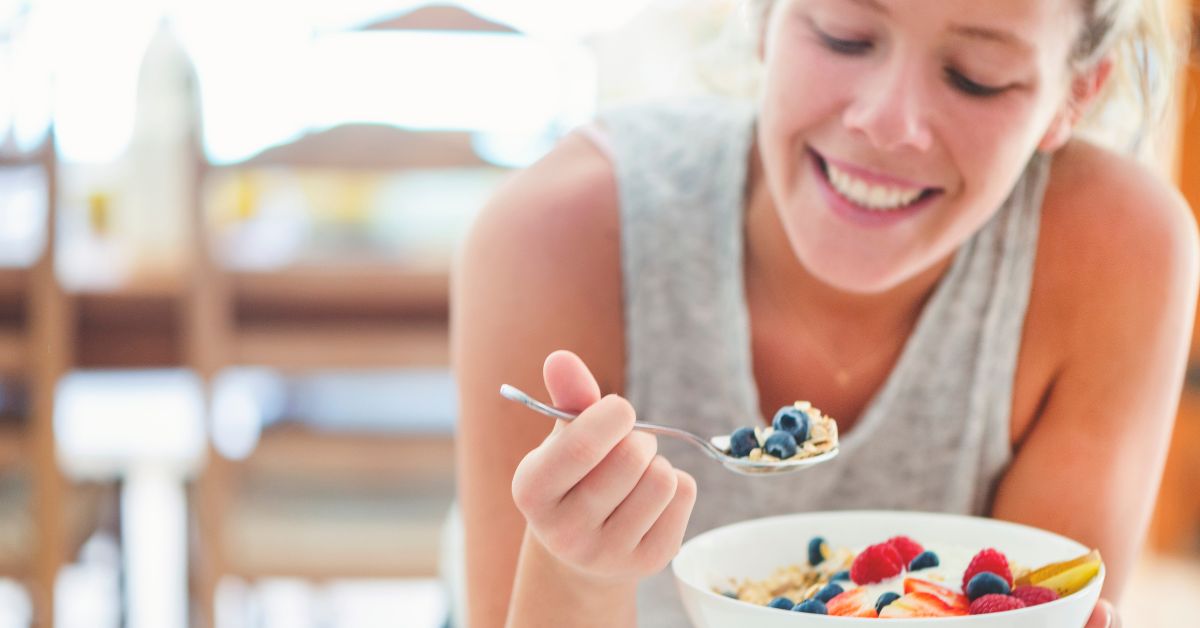Have you noticed while at home during the COVID-19 outbreak that your usual eating habits have been a bit off? Are you getting up from your makeshift desk to grab a snack more often than you would at the office? Home-bound students may be snacking while gaming or watching shows for more hours than before.
There is no doubt life is a bit different right now, and many of us are coping with new stresses in our lives by eating. According to the American Psychological Association, 27% of adults say they eat to manage stress.
Mindless snacking can lead to more stress and create a negative cycle. Instead, we want to develop a positive relationship with food and handle stress in healthier ways.
Factors that affect eating
According to a 2007 study, on average we make over 200 food and beverage decisions per day!
Many things contribute to what, when, and how much we eat. Some of these factors include stress levels, the amount and types of foods surrounding us, boredom, portion sizes, food packaging, who we eat with, and even the size of the plate and utensils we use.
Some of us now find ourselves working in our kitchens and surrounded by food all day. Finding a separate area for work can provide some physical and visual boundaries, just as setting a work schedule can create mental boundaries.
Better ways to manage stress
Finding healthy ways to cope with stress and finding outlets for relief is important. However, it can also be challenging.
Having a set schedule may help minimize the number of food decisions you have to make in the day. Start by thinking about your daily patterns and where there is room for improvement.
Think back to life before staying at home. Was your previous eating pattern working for you? If so, emulating the time structure you used to have may help create a sense of normalcy.
- Wake up around the same time
- Take regular breaks throughout the day
- Converse with coworkers (text, phone or video)
- Have a designated “end of the work day”
- Keep structured meal times like you would at the office or school
Instead of using food as a stress relief throughout your day, try starting an exercise routine, journaling, listening to or playing music, talking with a friend, yoga, meditation, reading a good book or seeking the help of a professional counselor or therapist online.
Healthy snacking tips
Snacks can help bridge the gap between two distant meals. Often going long periods of time without eating can lead to more intense hunger at the next meal, larger portions and higher-calorie choices than intended.
Try some of these tips for better, healthier snacking:
- Keep fruits and vegetables on hand to grab for snacks.
- Check in with your own hunger and fullness cues before grabbing something in the kitchen. If only a piece of candy or chips will “hit the spot,” then it is not real hunger.
- Have a glass of water first, because you may simply be thirsty.
- Include both fiber and protein in your snack to help fill you up. Examples could include a bowl of Greek yogurt with berries, hummus and carrots, or an apple with walnuts.
- Plan out your meals and snacks for the day, so there is less hunting for something that sounds good.
- Keep healthier snacks in the front of the pantry and treats toward the back, out of direct eyesight.
- Put bulk snacks in individually portioned baggies. You can also put a portion on a plate instead of eating right out of the bag.
- Keep a food log to increase awareness of each time you grab something to eat or drink.
Stay updated on what Mercy Health is doing related to COVID-19.






